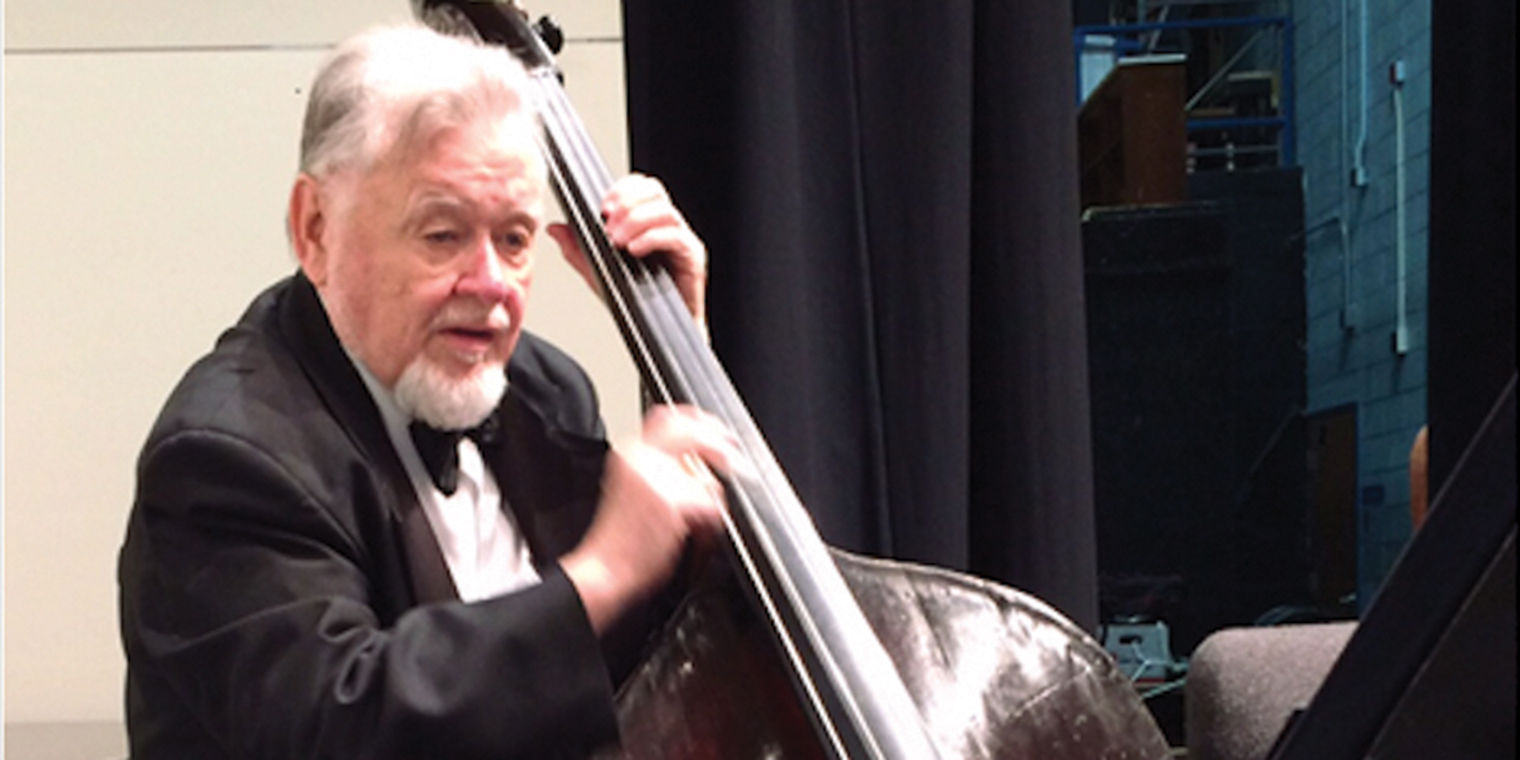Ed Skidmore can’t remember a time when he wasn’t fascinated by music. Born in Boston, he and his family moved to Grand Rapids when he was two, around the beginning of the depression. His family had a “living room radio” that received Chicago stations and every morning he heard fine classical music, but every three minutes the music was interrupted by a time hack. Skidmore jokes that it was years later that he found out that music did not include interruptions every three minutes.
He later obtained some 78rpm recordings which were sold with a turntable that could be played through a radio. These included the great music like Beethoven’s Fifth Symphony, the Nutcracker Suite, and more. Skidmore was in love with this music and quips that he “played those records till you could hear the other side coming through.”
As a band student in high school he tried trombone, “I was awful,” but he got hit in the mouth with a clarinet case after one performance and that was the end of his trombone playing. Sitting in band class shortly thereafter with nothing to do, the teacher suggested that he go straighten up the storage room, where he found a bass fiddle and within 10 minutes knew that’s what he wanted to do with his life. As bad a trombone player as he was, he took to this instrument right away. There was no one to teach him so he got a lesson book and taught himself. Within two months he was playing first chair in the orchestra. (“Which simply tells you how bad we were,” he adds.)
Skidmore loved playing all kinds of music in various groups that needed a bass fiddle – from the Lansing (MI) Orchestra to the high school dance band where he even made a little money. He always says that he has had a lot of luck, just like finding the bass in the storage room. “It’s funny how these things work out. I have never initiated anything. Someone or something has always shoved me in this way or that.”
Skidmore entered the University of Michigan in 1947 with the idea that maybe someday he could play in a symphony orchestra. Friends and teachers were appalled. Music simply was not a sought-after profession. Everyone was negative including two high school teachers who advised him that “if you insist on following this path, you’ll ruin your life with drink and drugs.” Skidmore says today, “Not yet.”
He continued until his junior year when he grew unhappy with a department decision to place him in the education school. One night he was invited to play in Detroit with an amateur orchestra and they ended up inviting him to tour Scandinavia with them for six weeks. He quit school, called his folks to tell them, and for some reason his dad became his greatest supporter.
He did finish his degree after his return. He even went on to complete a graduate degree over the next two years. As he was finishing up, an old friend who was the head composer for the Air Force band, invited him to Washington to audition. (Right place, right time again?) Skidmore got the job and spent five seasons touring with the band.
Upon completing his service with the Air Force, he auditioned for the National Symphony Orchestra, was hired, and spent the next 36 years with the NSO. He speaks fondly of his career there, playing under the direction of Howard Mitchell, Antal Dorati, and Mstislav Rostropovich. He speaks fondly of them all. Of Rostropovich, he tells the following story:
At the orchestra’s very first rehearsal, someone asked, “Maestro, how do you want this section to be played? Feigning indignation, Rostropovich replied, “What is this ‘maestro’ s**t? If I’m expected to know your names, I expect you to know mine. It’s Slava!” And from that moment on, that’s what he was called.
“Part of the adventure of playing for the NSO was seeing the orchestra grow. Much like a ball team, an orchestra gets better over time – not just the players but also the audience, the venue, the touring, the management – everything gets raised up to a better standard, getting edged up bit by bit.”
At the end of Rostropovich’s departure from the NSO, Ed Skidmore decided it was time to retire, at least from the daily grind of a symphony orchestra. He was 65 and would be able to look after his aging mother.
Since then he plays with anyone who needs a journeyman bass player. A regular engagement is with the City of Fairfax Band which performs several times a year in the area.
“How your life fits together and what cockamamie things have tipped you in this direction or that is a mystery, and in my case, it all started with getting hit in the mouth by a clarinet case.”






